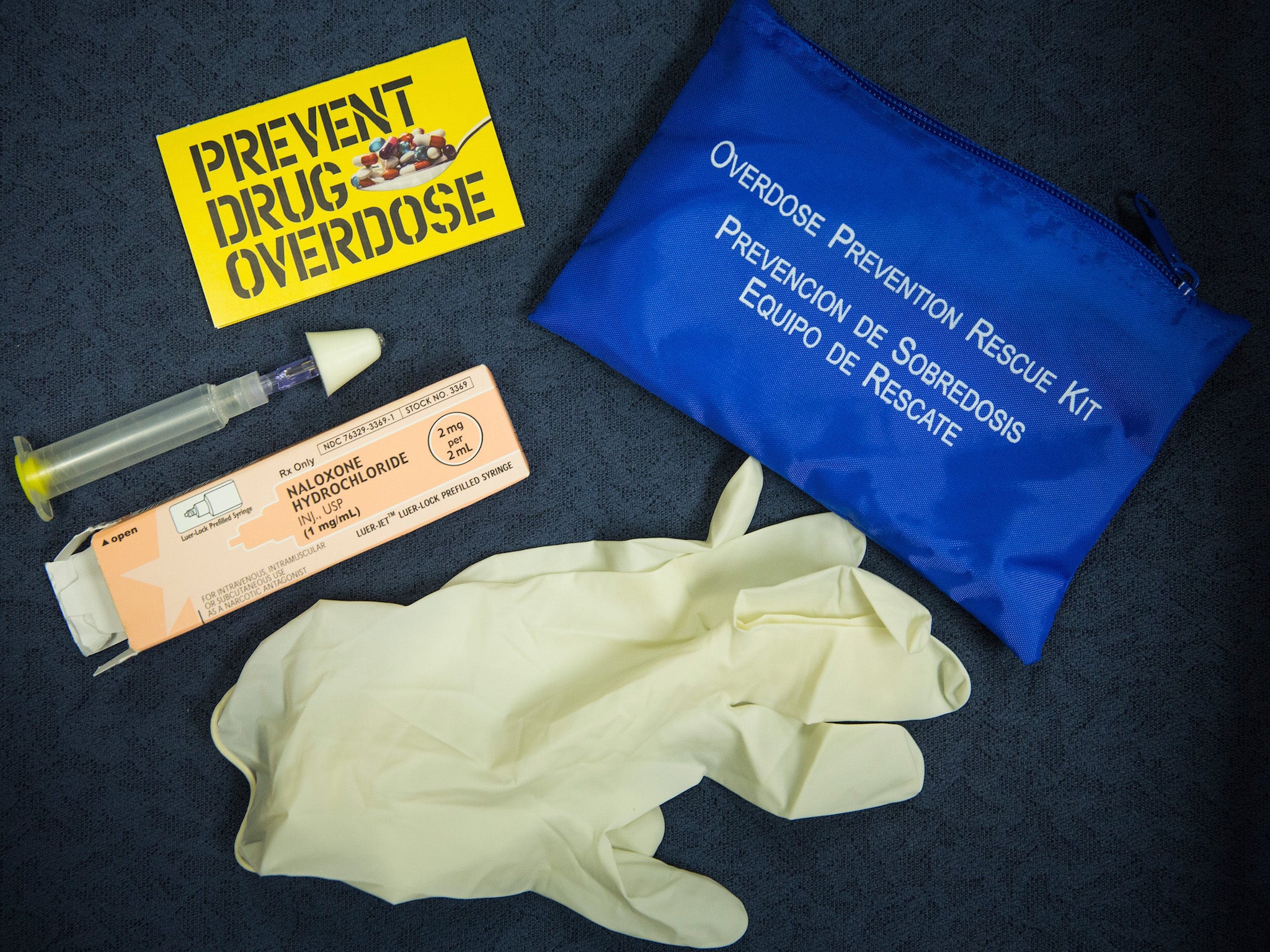President Obama seeks $1.1 billion to fight heroin and opiate epidemic
Heroin and opioid painkillers killed more people in 2014 than car accidents.

Your support helps us to tell the story
From reproductive rights to climate change to Big Tech, The Independent is on the ground when the story is developing. Whether it's investigating the financials of Elon Musk's pro-Trump PAC or producing our latest documentary, 'The A Word', which shines a light on the American women fighting for reproductive rights, we know how important it is to parse out the facts from the messaging.
At such a critical moment in US history, we need reporters on the ground. Your donation allows us to keep sending journalists to speak to both sides of the story.
The Independent is trusted by Americans across the entire political spectrum. And unlike many other quality news outlets, we choose not to lock Americans out of our reporting and analysis with paywalls. We believe quality journalism should be available to everyone, paid for by those who can afford it.
Your support makes all the difference.As heroin- and opioid-related deaths have reached unprecedented levels in the United States, President Barack Obama has asked for an additional $1.1 billion to fund treatment of heroin and opiate addiction.
The White House released the proposal Tuesday, noting that opiate overdoses -- which includes heroin -- killed more people than car accidents in 2014. The majority of the money would go toward working with states to expand access to medication-assisted treatment for opiate addiction, according to the proposal. This funding will be included in the fiscal 2017 budget request.
New Hampshire Gov. Maggie Hassan, whose state has been devestated by the heroin epidemic, applauded the proposal in a statement on her website.
“The heroin and opioid crisis is the most urgent public health and public safety challenge facing New Hampshire, and combating this crisis requires us all to work together at the state, federal and local levels every single day," the governor said. "Our law enforcement community and public health experts across the state have made it clear that we cannot arrest our way out of this crisis, and I am encouraged by the President’s recognition that states need additional support from our federal partners to support prevention, treatment and recovery programs."
The Centers for Disease Control reported that in 2014, 28,648 people in the U.S. died from opioid-related overdoses. Since 2000, opioid-related overdose deaths have increased 200 per cent, the CDC reported.
The current epidemic started from an overprescription of prescription painkillers in the late 1990s and early 2000s. People quickly became addicted and, once regulators became aware of the problem, the pills became harder to get. Many turned to heroin, which can be significantly cheaper than painkillers. In New York, heroin is often cheaper than marijuana, according to the Drug Enforcement Administration.
President Obama has recommended several measures to try and loosen heroin's grip on the U.S., so far to no avail. The most recent proposal has received support on social media from lawmakers.
The president's proposal calls for a two-sided approach to combating the drug epidemic. Mr. Obama is asking for $1 billion in mandatory funding over two years to expand access to treatment, the proposal says, including:
- $920 million to support cooperative agreements with States to expand access to medication-assisted treatment for opioid use disorders. States will receive funds based on the severity of the epidemic and on the strength of their strategy to respond to it. States can use these funds to expand treatment capacity and make services more affordable.
- $50 million in National Health Service Corps funding to expand access to substance use treatment providers. This funding will help support approximately 700 providers able to provide substance use disorder treatment services, including medication-assisted treatment, in areas across the country most in need of behavioral health providers.
- $30 million to evaluate the effectiveness of treatment programs employing medication-assisted treatment under real-world conditions and help identify opportunities to improve treatment for patients with opioid use disorders.
Mr. Obama also is calling for Second about $500 million -- an increase of more than $90 million -- to continue current efforts within the Departments of Justice and Health and Human Services concerning prescription drug overdose prevention strategies, the availability of medication-assisted treatment programs, access to the overdose-reversal drug naloxone, and targeted enforcement activities.
Follow @PaytonGuion on Twitter.
Join our commenting forum
Join thought-provoking conversations, follow other Independent readers and see their replies
Comments